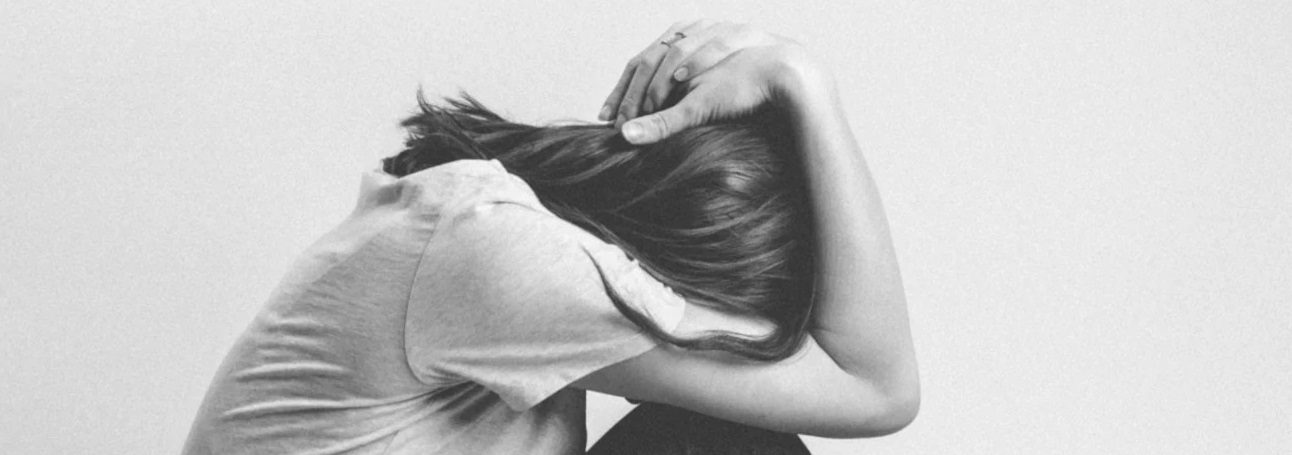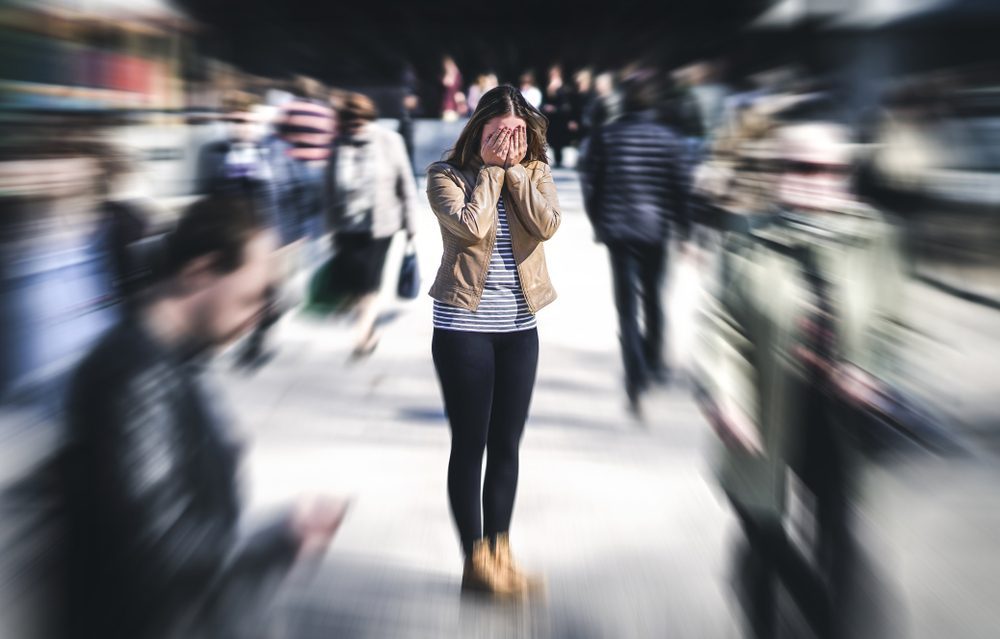Understanding the symptoms of anxiety
Anxiety is normal, and recognising the symptoms of anxiety forms part of understanding our natural responses to the world around us as we live our lives.
The body reacts to fear and anxiety by releasing stress hormones such as adrenaline and cortisol. Generally, we experience feelings as a reaction to an upcoming event, and the circumstances of that event may be as different as pre-wedding nerves, dealing with financial and legal matters.
Anxiety is an emotional state of mind that we share with our ancient ancestors and developed in a world where triggering a “fight or flight” response could be the key to surviving another day.
Severe anxiety can make survival very challenging. Symptoms are responsible for preventing normal existence for many people who have to live with constant worry and fear.
Anxiety can become something that we have to cope with living with for prolonged periods or even on a daily basis. It is estimated that around 5% of the UK population suffer from severe anxiety on an ongoing basis, with the numbers for women slightly higher than for men.
Physical symptoms of anxiety may include:
- Feeling Nervous
- Feelings of impending danger/panic or doom
- Elevated heart rate
- Faintness
- Feeling restless
- Feeling tense
- Body zaps anxiety
- Hypochondria
- Breathing rapidly (hyperventilation)
- Dyspnea (shortness of breath)
- Sweating
- Chest pain
- Burning skin sensation
- Trembling
- Tiredness feeling weak
- Impaired concentration/over-focused on the source of worry
- Disturbed sleep/insomnia
- Gastrointestinal problems
The bottom line is this – anxiety can make life very challenging. As a group of mental illnesses, they are responsible for preventing normal coping mechanisms for many people who have to live with constant worry and fear.
Wrestling with the symptoms of anxiety is difficult enough without having to bother about daily misunderstandings. For instance, it is generally thought that anxiety is uncommon. However, this would appear not to be true. In England, 1 in 6 people expresses they have had a general mental health problem (such as anxiety and depression) in any given week. 1.
For the person that has anxiety disorders such as panic disorder, agoraphobia and phobias, some of the mental health issues that are being presented in relation to COVID-19 might give rise to problems such as, stress, anger, sleeping problems, drinking too much alcohol and give specific challenges and thoughts of loneliness and ‘feeling trapped.
Anxiety is complicated – sometimes there might not even be a cause.
What is anxiety?
Anxiety is a necessary part of life. We use the words “anticipation” at one extreme and “panic” at the other to describe the emotions accompanying what is commonly called the “fight or flight reaction”. The body’s ability to respond to danger by increasing the heart rate and diverting blood to body muscles enables people to survive. With the pounding heart and the dry mouth comes an increase in alertness and heightened attention to external stimuli. All of this prepares people to take action.
Anxiety is a familiar name we give to the feeling accompanying the physiological response to danger or a threat of danger. In modern society, these threats are more threats to our psychological well-being than to our physical well-being. Anxiety before activity of any kind can provide the initial energy that pushes us to excel, motivating us to focus our thinking on ways to reduce the danger.
The world that we live in today is more complex than that ancient landscape, but our natural responses are identical to those of our ancestors. While we are not likely to be attacked in the forest by a bear, an attack may come in the form of pressure to perform at work, school or college, money worries, family matters or from a host of other sources. The point is, that when we experience feelings of angst, we are responding naturally to events around us – we may not need to run away from a potential predator. Still, we may need a little anxiety to finish that project on time or walk home a little more carefully in the dark.
Despite its positive aspects, anxiety makes us feel unpleasant, and we see no benefit in unpleasant experiences unless we can see them as useful in some way. Unfortunately, the usefulness of anxiety is seldom recognised or accepted. This view leads to attempts to eliminate anxiety from our lifespan.
Many factors can affect mental health. Anxiety is a symptom of a variety of disorders, including:
Generalised anxiety attack symptoms
The symptoms of anxiety attacks will be all too familiar to some readers, and it is the most common of the disorders. People with GAD excessively worry about a wide variety of things and may feel as though circumstances are out of their control. You may feel in a heightened state of alert, jumpy and on edge.
Work, family, relationships, travel, and events may all be difficult as a result – physical symptoms such as tension, aches and pains and sweating can compound the effects for the sufferer.
Diagnosing GAD is not always easy and can take time. You will probably be diagnosed with GAD if almost daily anxiety has had a negative impact on you over a six month period. Depression and other anxiety disorders can go hand in hand with GAD.
Panic attacks

A panic attack can be a frightening experience. Panic disorder leads to regular panic attacks which happen suddenly with no specific trigger. Worrying about having another panic attack can be an additional source of anxiety. Not all panic attacks are a symptom of panic disorder – an attack can be triggered by severe stress like losing a job or the death of someone close to you.
The signs of an anxiety attack can include:
- Chest pain or perceived irregular heartbeat.
- Thinking that you are having a heart attack
- Feelings of dread or fearfulness
- Sweating/hot flushes, or chills/shivering
- Dry mouth/shortness of breath
- Nausea/dizziness/feeling faint
- Numbness/pins and needles/tingling in fingers
- Needing the toilet
- Churning sensation in the stomach
- Ringing in ears
While overanxiety exhibits physical symptoms, these will decrease.
Social anxiety disorder
People with Social Anxiety suffer fear and dread of social situations. These feelings are not necessarily limited to the event itself, but may be experienced beforehand or even after the situation or circumstance.
Stress can be triggered in many everyday situations such as going out in public, public speaking or participating in group discussions, or meeting new people. You may feel embarrassed, have an elevated heartbeat or have a shaky voice. Being aware of these symptoms, you may feel self-conscious and worry that others will notice. You may even be aware that you overreact to these stressful situations.
Obsessive-compulsive disorder (OCD)
Obsessive-compulsive disorder is a disorder characterised by unwelcome thoughts or images that can be difficult to ignore or control. The resulting anxiety for people with OCD is relieved by checking that doors are locked, or appliances switched off, repeating phrases in your head or arranging things in a specific way.
Despite being aware that this behaviour and thinking is not logical, you may find it hard to stop. You might believe that something terrible will happen if you do not do these things.
There are different types of OCD, which include:
- Cleaning and contamination.
- Compulsive checking
- Symmetry and ordering
- Intrusive thoughts
- Hoarding (may also be a separate condition)
- Harmful thoughts or impulses
Skin picking (dermatillomania) is an impulse control disorder that sometimes accompanies OCD but can exist in isolation. You may pick at the skin on your face or elsewhere on your body to the point of causing damage to the skin. Skin picking may not always be categorised as a form of OCD – indeed, it may be an addiction.
Similar to this is hair pulling (trichotillomania) – an impulse control disorder where you feel compelled to pull out hair from your head or elsewhere on your body. You will find it difficult to stop yourself doing this – the relief of tension from pulling out hair can result in added stress, embarrassment and hair loss.
Body dysmorphic disorder (BDD)
If you have BDD, you will suffer disturbing and ongoing daily thoughts about your physical appearance. This may present as a belief that your appearance is ugly, or that others notice a specific feature like a scar, birthmark or another aspect of your body. You will be obsessed with this and may spend large amounts of time looking in the mirror or considering cosmetic surgery. You may also spend time trying to correct your appearance with makeup or clothes.
You may spend a significant amount of time:
- Staring at your body or face in the mirror
- Comparing your features with other people
- Covering yourself with lots of makeup
- Thinking about plastic surgery
Post-traumatic stress disorder (PTSD)
If a traumatic experience has caused your anxiety symptoms, then you have PTSD. This could be brought on by a variety of circumstances such as sexual abuse, violence, an accident, or even childbirth. It should be noted that you do not have to suffer actual physical harm during the traumatic event. The symptoms can include nightmares, flashbacks and difficulty sleeping. This can persist years after the original traumatic event.
Phobias
A phobia is an extreme or irrational fear of or aversion to something and much stronger than fears and can make life very difficult when a person experiences anxiety around avoiding the object of their phobia.
Some common phobias are phobias of specific animals, heights, germs, particular situations, body phobias such as body parts, fluids or odours and sexual phobias.
Agoraphobia
Agoraphobia is an extreme or irrational fear of entering open or crowded places, of leaving one’s own home, or of being in areas from which escape is difficult. This can make daily life difficult as you try to avoid having to leave home, visit public places or use public transport. The anxiety around preventing these situations can even make it difficult to seek help.
We are also able to offer access to inpatient services where this is required.
For more information on our therapy services, please contact 02072052845
Sources
https://www.mind.org.uk
https://www.nhs.uk/oneyou/every-mind-matters/coronavirus-covid-19-anxiety-tips/

John has dedicated his life to finding treatment for those with addictions and supporting their families.
A business manager for 20 years in the construction industry John’s own experience of addiction led him to found his own rehab centre group in Scotland.
John qualified as a counsellor for people with substance misuse during his time working as a therapist and manager for the foundation. He also trained as an interventionist and appeared on ITV as a consultant helping families impacted by addiction.
He has helped thousands of people in recovery and his knowledge of the rehabilitations process and the addiction experience is unparalleled.


